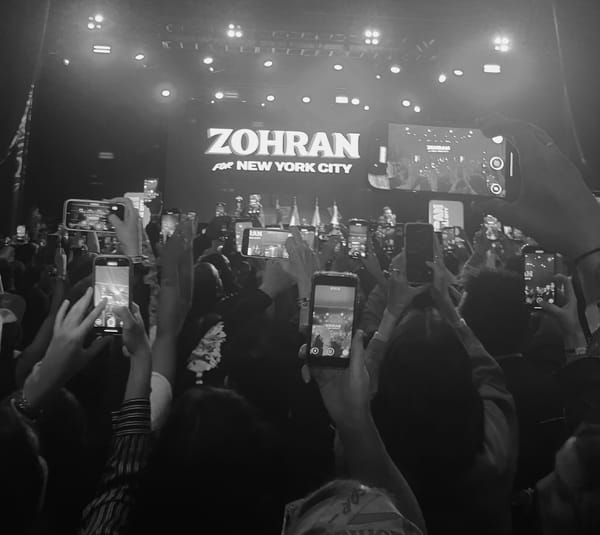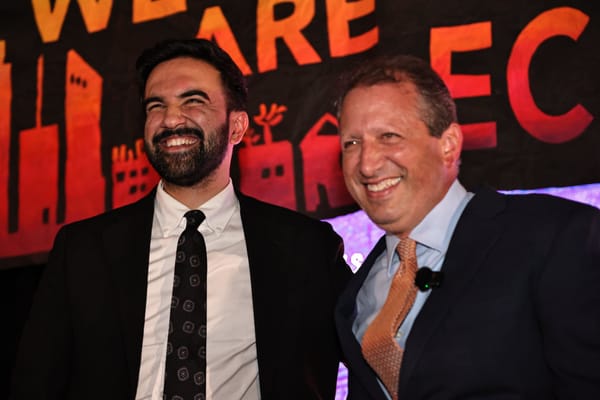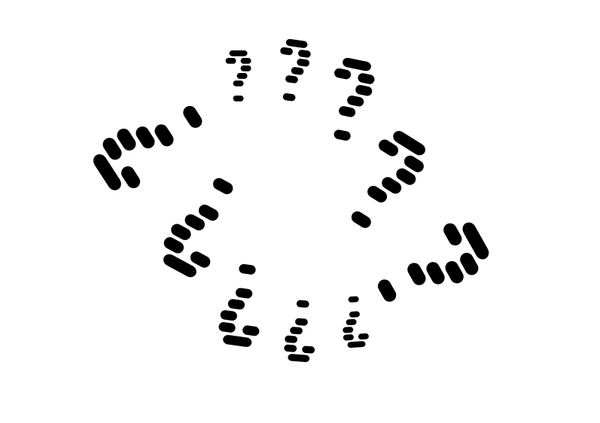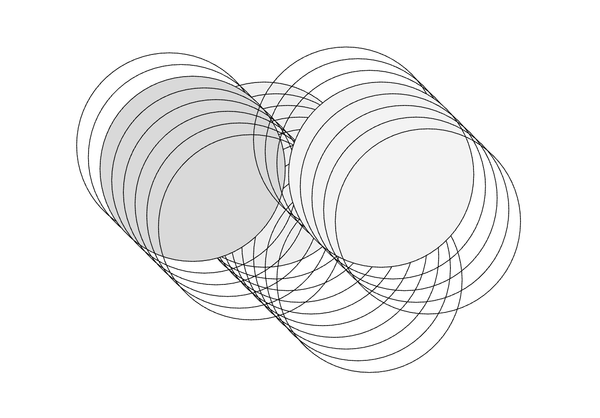How to think about crisis
The emergency is here -- but it also was and will be. And that's okay.
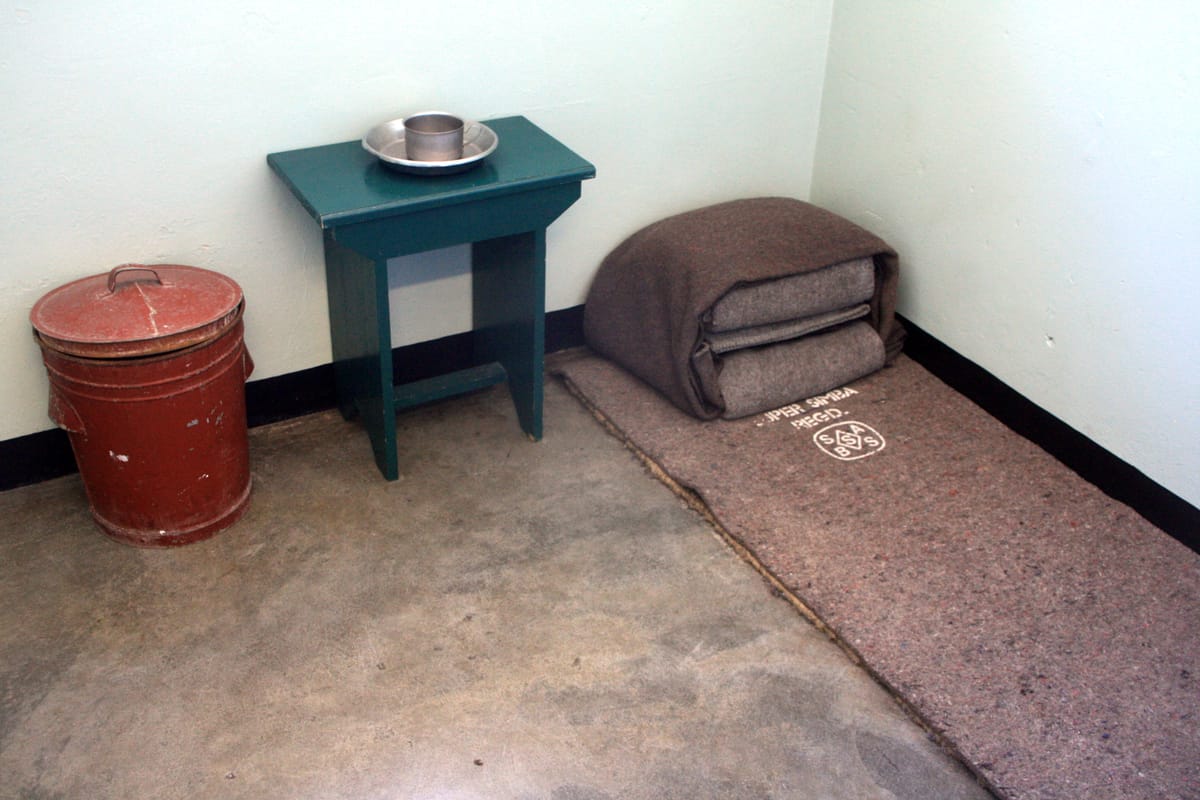
When is a crisis? “The crisis is now. It is not six months away. It is not another Supreme Court ruling away from happening. It’s happening now,” Ezra Klein said this week at the top of his show. But then he continued: “Perhaps not to you, not yet.”
Ezra’s major argument in this episode is that “the emergency is here” because of the ongoing constitutional crisis over the kidnapping and imprisonment of Kilmar Abrego Garcia and the other men sent to a concentration camp in El Salvador. I think that’s objectively correct – and encourage everyone to spend 15 minutes to listen to his monologue that starts the show – but I also think his phrasing here points to a contradictory sentiment about the ideas of crisis and emergency. If the crisis is now for some but also not yet for others, might we be able to reckon with crises outside of binaries, befores-and-afters, and last chances?
I say this because my first instinct right now is, no doubt, absolutist. It is to say things like “everything depends on Kilmar’s case.” If the government can disappear someone with legal protections to a foreign gulag, completely fabricate their associations and activities, disobey court orders for return, deny requests by a US senator, and leave the hostage there to die, there does not seem to be any hope of protection left for anyone else. The overwhelming feeling is that if we can free Kilmar, we can rise up against this regime’s lawlessness – but if we lose Kilmar, it’s authoritarianism unchecked, fascism wins. The game is over. This feeling is not new now, or limited here. Every time a crisis strikes the nervous system, it feels that way before it resolves, whether it’s the jurisdiction of Mahmoud’s case, the Dobbs decision, this results of the last election, the most recent degree celsius of global warming, or the pending threat to the non-profit status of organizations.
And yet, these crises do resolve — the stakes may be huge, the consequences may be devastating — but at least, so far, they have never prevented us from having a choice about how we face the next one.
I think we may wish that they did.
Thinking of emergencies in this way can let us off the hook if we lose (well, no hope now…) and placate us if we win (everything is fixed!). It is a tortured kind of relief to think this way: the struggle becomes containable, the resolution of the problem, for better or worse, is imminent.
This kind of absolutism is also persistent precisely because it mimics the style of our opposition. Fascism is the realm of absolutes and permanence, where threat is apocalyptic and damage is irreparable. Immigration is an existential threat to civilization; gender outside a binary will destroy the fabric of society; if someone is a member of a gang, they deserve to be sent to die in a camp.
Fascists also wield this style to create a fear that any opposition could lead to obliteration – we use this style on ourselves to create a fear that not enough opposition could lead to obliteration.
The truth that we have known and lived is otherwise. While the aftermaths of crises change the conditions of how we operate, we still operate. We are faced with decisions that are perhaps not independent from what came before, but are certainly separate. This is why there are no permanent dictatorships and why democracies can somehow come from autocracies; it’s how Mandela can spend 27 years in prisons of his oppressors and come out to lead with reconciliation instead of revenge. We are not condemned or saved by the resolution of any one crisis.
Instead, perhaps, we are forged by the way we decide to operate across them.
How can we balance the need for gravity with the need for oxygen? To be motivated by emergencies but not suffocated by their conclusion?
There is an idea found in Judaism and in Islam that “whoever saves a life, saves a whole world.” This is a weighty burden, yes – but I think it also expresses the duality, multiplicity, fluidity, and nuance of the politics and ethics we seek.
We ought to fight because each life we can love and save is sacred. But we may miss and we may mess up. There will be deep sorrow – and there will be another chance.
Yes: the emergency is here. But perhaps it was also here yesterday and will be tomorrow, too, depending on your luck — or just your willingness to care.
Free Kilmar. Free Mahmoud. Free Rumeysa. Free Jeanette. Free Mohsen.
Free all the persecuted.
Subscribe to get more Empty Brain
